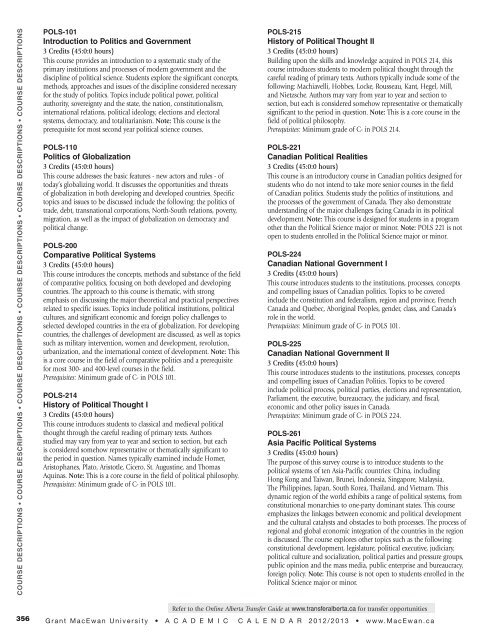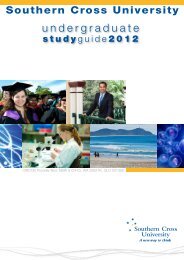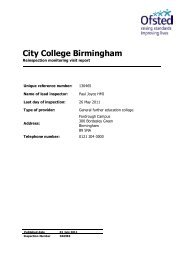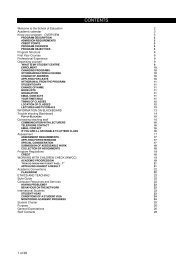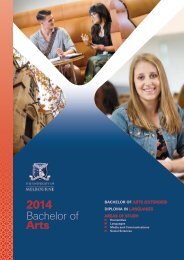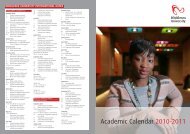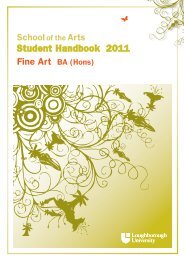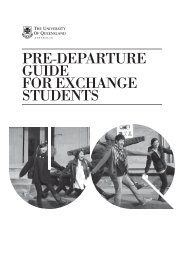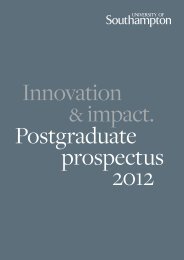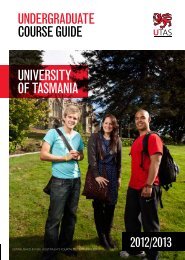Academic Calendar 2012/2013
Academic Calendar 2012/2013
Academic Calendar 2012/2013
You also want an ePaper? Increase the reach of your titles
YUMPU automatically turns print PDFs into web optimized ePapers that Google loves.
course Descriptions • course Descriptions • course Descriptions • course Descriptions • course Descriptions • course DescriptionsPOLS-101Introduction to Politics and Government3 Credits (45:0:0 hours)This course provides an introduction to a systematic study of theprimary institutions and processes of modern government and thediscipline of political science. Students explore the significant concepts,methods, approaches and issues of the discipline considered necessaryfor the study of politics. Topics include political power, politicalauthority, sovereignty and the state, the nation, constitutionalism,international relations, political ideology, elections and electoralsystems, democracy, and totalitarianism. Note: This course is theprerequisite for most second year political science courses.POLS-110Politics of Globalization3 Credits (45:0:0 hours)This course addresses the basic features - new actors and rules - oftoday’s globalizing world. It discusses the opportunities and threatsof globalization in both developing and developed countries. Specifictopics and issues to be discussed include the following: the politics oftrade, debt, transnational corporations, North-South relations, poverty,migration, as well as the impact of globalization on democracy andpolitical change.POLS-200Comparative Political Systems3 Credits (45:0:0 hours)This course introduces the concepts, methods and substance of the fieldof comparative politics, focusing on both developed and developingcountries. The approach to this course is thematic, with strongemphasis on discussing the major theoretical and practical perspectivesrelated to specific issues. Topics include political institutions, politicalcultures, and significant economic and foreign policy challenges toselected developed countries in the era of globalization. For developingcountries, the challenges of development are discussed, as well as topicssuch as military intervention, women and development, revolution,urbanization, and the international context of development. Note: Thisis a core course in the field of comparative politics and a prerequisitefor most 300- and 400-level courses in the field.Prerequisites: Minimum grade of C- in POLS 101.POLS-214History of Political Thought I3 Credits (45:0:0 hours)This course introduces students to classical and medieval politicalthought through the careful reading of primary texts. Authorsstudied may vary from year to year and section to section, but eachis considered somehow representative or thematically significant tothe period in question. Names typically examined include Homer,Aristophanes, Plato, Aristotle, Cicero, St. Augustine, and ThomasAquinas. Note: This is a core course in the field of political philosophy.Prerequisites: Minimum grade of C- in POLS 101.POLS-215History of Political Thought II3 Credits (45:0:0 hours)Building upon the skills and knowledge acquired in POLS 214, thiscourse introduces students to modern political thought through thecareful reading of primary texts. Authors typically include some of thefollowing: Machiavelli, Hobbes, Locke, Rousseau, Kant, Hegel, Mill,and Nietzsche. Authors may vary from year to year and section tosection, but each is considered somehow representative or thematicallysignificant to the period in question. Note: This is a core course in thefield of political philosophy.Prerequisites: Minimum grade of C- in POLS 214.POLS-221Canadian Political Realities3 Credits (45:0:0 hours)This course is an introductory course in Canadian politics designed forstudents who do not intend to take more senior courses in the fieldof Canadian politics. Students study the politics of institutions, andthe processes of the government of Canada. They also demonstrateunderstanding of the major challenges facing Canada in its politicaldevelopment. Note: This course is designed for students in a programother than the Political Science major or minor. Note: POLS 221 is notopen to students enrolled in the Political Science major or minor.POLS-224Canadian National Government I3 Credits (45:0:0 hours)This course introduces students to the institutions, processes, conceptsand compelling issues of Canadian politics. Topics to be coveredinclude the constitution and federalism, region and province, FrenchCanada and Quebec, Aboriginal Peoples, gender, class, and Canada’srole in the world.Prerequisites: Minimum grade of C- in POLS 101.POLS-225Canadian National Government II3 Credits (45:0:0 hours)This course introduces students to the institutions, processes, conceptsand compelling issues of Canadian Politics. Topics to be coveredinclude political process, political parties, elections and representation,Parliament, the executive, bureaucracy, the judiciary, and fiscal,economic and other policy issues in Canada.Prerequisites: Minimum grade of C- in POLS 224.POLS-261Asia Pacific Political Systems3 Credits (45:0:0 hours)The purpose of this survey course is to introduce students to thepolitical systems of ten Asia-Pacific countries: China, includingHong Kong and Taiwan, Brunei, Indonesia, Singapore, Malaysia,The Philippines, Japan, South Korea, Thailand, and Vietnam. Thisdynamic region of the world exhibits a range of political systems, fromconstitutional monarchies to one-party dominant states. This courseemphasizes the linkages between economic and political developmentand the cultural catalysts and obstacles to both processes. The process ofregional and global economic integration of the countries in the regionis discussed. The course explores other topics such as the following:constitutional development, legislature, political executive, judiciary,political culture and socialization, political parties and pressure groups,public opinion and the mass media, public enterprise and bureaucracy,foreign policy. Note: This course is not open to students enrolled in thePolitical Science major or minor.356Grant MacEwan University • A C A D E m I CRefer to the Online Alberta Transfer Guide at www.transferalberta.ca for transfer opportunitiesC A L E N D A R <strong>2012</strong>/<strong>2013</strong> • www.MacEwan.ca


